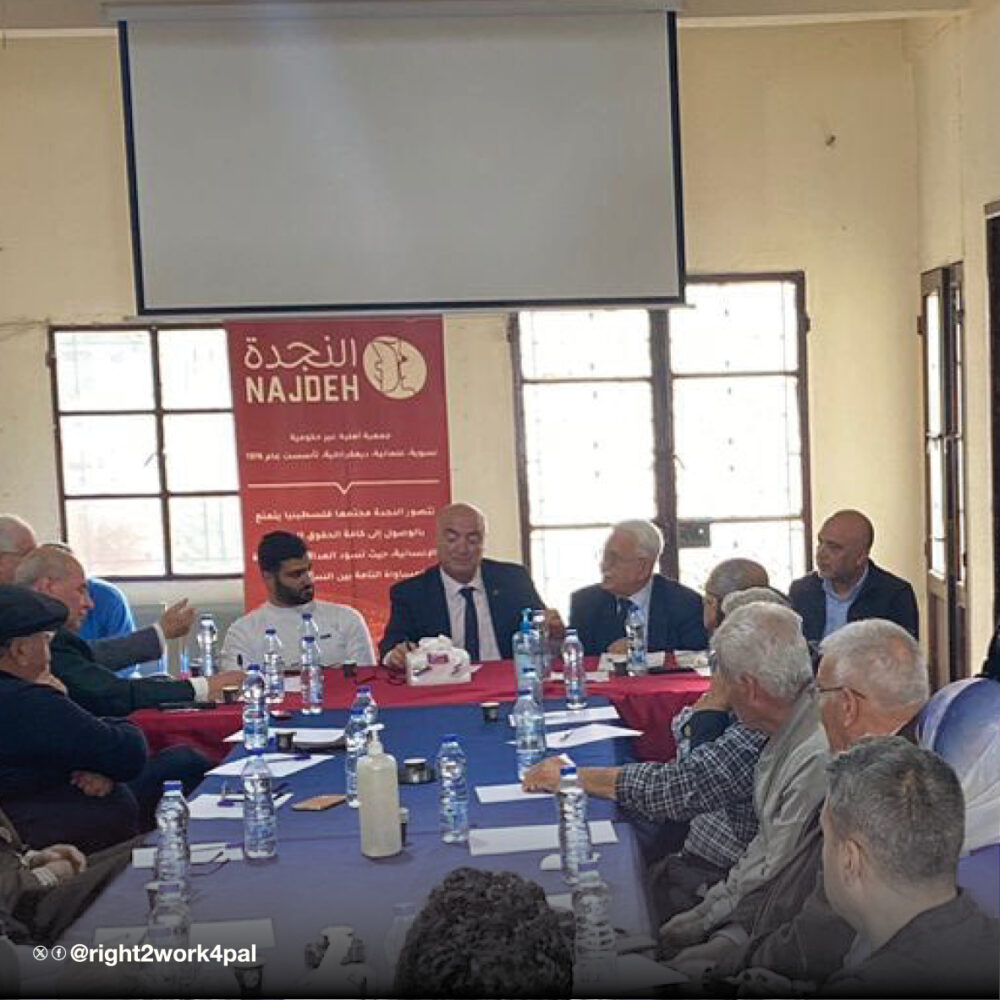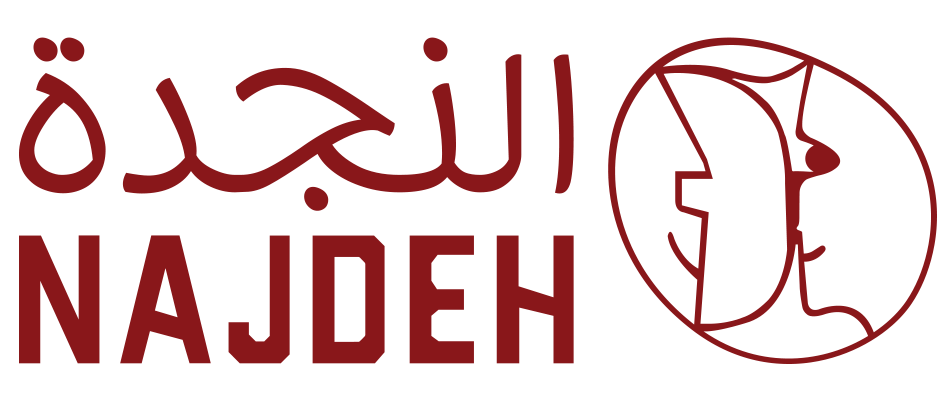
The Situation of Palestinian Refugees in Lebanon and the Impact of the Economic Crisis on Palestinian Labour in Saadnayel
01/05/2025
Saadnayel: On the occasion of International Workers’ Day, the Lebanese-Palestinian Coalition for the Right to Work Campaign for Palestinian Refugees in Lebanon organised an interactive seminar and open discussion titled “The Situation of Palestinian Refugees in Lebanon and the Impact of the Economic Crisis on Palestinian Labour.” The event was attended by representatives of Lebanese national and Islamic parties and forces, factions and popular committees, Mr. Mohamed Khaled, a member of the Palestinian National Council, Mr. Yasser Al-Hajj, UNRWA director in Beqaa, along with institutions, NGOs, women’s committees, local community activists, and workers.
Mr Omar Ali, the coalition coordinator in Beqaa, welcomed the attendees and read the coalition’s statement for International Workers’ Day: “No Economic and Social Justice Without Ending the Genocide of Palestinian Workers. Greetings and appreciation to workers worldwide, especially to those in Palestine, Gaza, the West Bank, Jerusalem, and the occupied territories, who, like other members of the Palestinian people, endure systematic violations by the Israeli occupation: harassment at military checkpoints, targeting of labour and agricultural facilities, land confiscation, and suffering from genocide, starvation, and displacement in Gaza. Special recognition is given to the workers in Lebanon and Palestine who face harsh economic conditions and overcome difficulties to ensure a decent living for their families.” The discussion highlighted key issues affecting Palestinian labour.
Lawyer Suhail Natour, a researcher, political thinker, and member of the Lebanese-Palestinian Dialogue Committee, spoke about the crisis facing Palestinian workers as part of a broader targeting of all refugee groups. He noted that Palestinian refugees are particularly affected by the comprehensive economic war against them, which includes direct targeting of UNRWA. He highlighted that Palestinian refugees in Lebanon are among the most affected due to limited options and predicted that this pressure will increase. He cited the example of the US cutting funding to UNRWA for a year as one form of this pressure, which might take various forms in the future.
Natour further explained that the economic war targeting UNRWA and drying up its financial resources has failed, despite ongoing efforts. He expects increased economic pressure on refugees in Lebanon, particularly workers, through heightened pressure on UNRWA or legal restrictions and persecutions, as seen with Minister Camille Abou Sleiman and the rejection of improvements for Palestinian workers attempted by Minister Mustafa Bayram.
Natoor continued, stating that Palestinian workers and refugees in Lebanon are only demanding their basic human right to legal recognition through legislation that provides protection, allowing them to work freely without legal persecution. He emphasised that Palestinian workers do not compete with Lebanese workers and are an important part of the Lebanese economy. Legal pressure and closing the Lebanese job market to Palestinian workers have led to an economic collapse, reflected in UNRWA’s data showing very high poverty rates among refugees in Lebanon.
Dr Fawaz Farhat, head of the Popular Intellectual Current Association, stressed that addressing the difficult economic and social conditions faced by Palestinian workers requires cooperation from international, Lebanese, and Palestinian authorities to find solutions. He called for providing minimum living standards and mobilising a unified popular movement to pressure UNRWA and donor countries to adopt policies and measures that address the Lebanese crisis.
In conclusion, a discussion and exchange of ideas took place on the obstacles and appropriate methods to ensure that Palestinian refugees receive their human rights.
